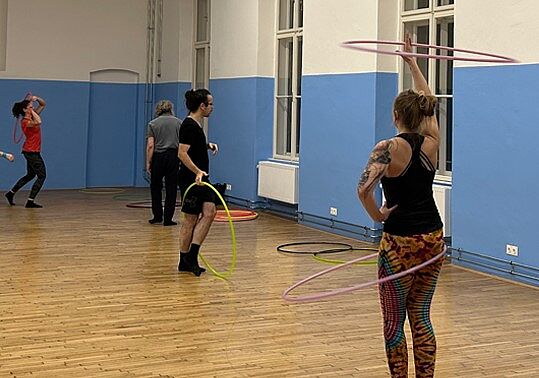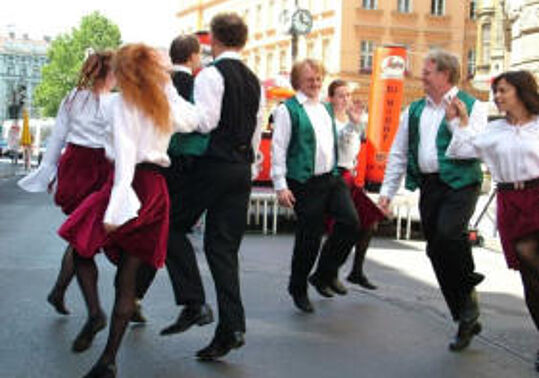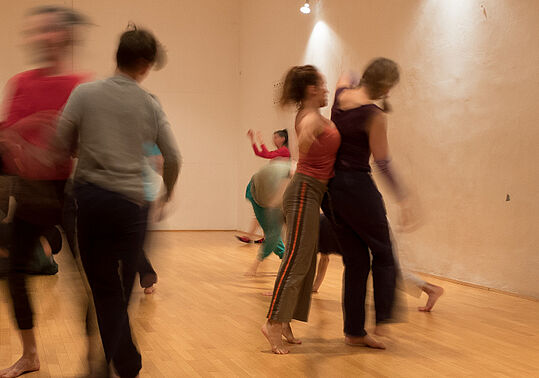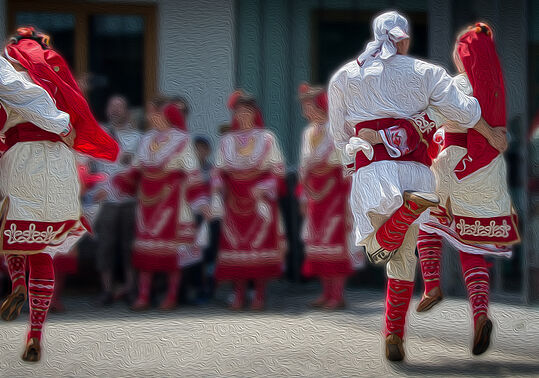
19. bis 21. April 2018
19:30 Uhr
WUK
God's Entertainment: Convakatary Konak
God’s Entertainment turns WUK into a konak* of many peoples and confessions, into a bustling space of encounters where not only paths cross but also the swords of occident and orient. As residents in-between worlds drifted apart, which suddenly don’t understand each other anymore (while pretending they have never understood each other or learned from each other) they assume the role of interpreters who create a sort of iunctim, a connection in which both sides are mutually dependent.
But instead of explaining the differences between east and west they create an imaginary home for all who have stranded here, where otherness is abolished. Based on the novel “The Days of the Consuls” by Nobel laureate in literature Ivo Andric, which describes the Balkans as a zone of ongoing conflict between orient and occident, GE conjure contexts and situations in which identity is in flux, the guest is declared an inhabitant and vice versa, because: Nobody knows what it means to love and hate one (world) as much as the other, to totter and stumble back and forth all your life, to have a double and no homeland, to be at home everywhere and remain a stranger eternally, in short: to live, nailed to the cross, victim and torturer in one person.
*The term konak, from Turkish origin, means a stopping place, inn, or an official residence. At the time of the Ottoman Empire the konak served as a place of rest and exchange, where the viziers as the highest representatives of the empire and Western European consuls discussed the future of the Balkan peoples. These negotiations could only be conducted with the help of interpreters, so the parties were completely dependent on their translations. The intentions and views on the respective other were thus strongly informed and influenced by the language transfer. Even the translation is understood as a political act, as an agency of differences, as a search for identity.





